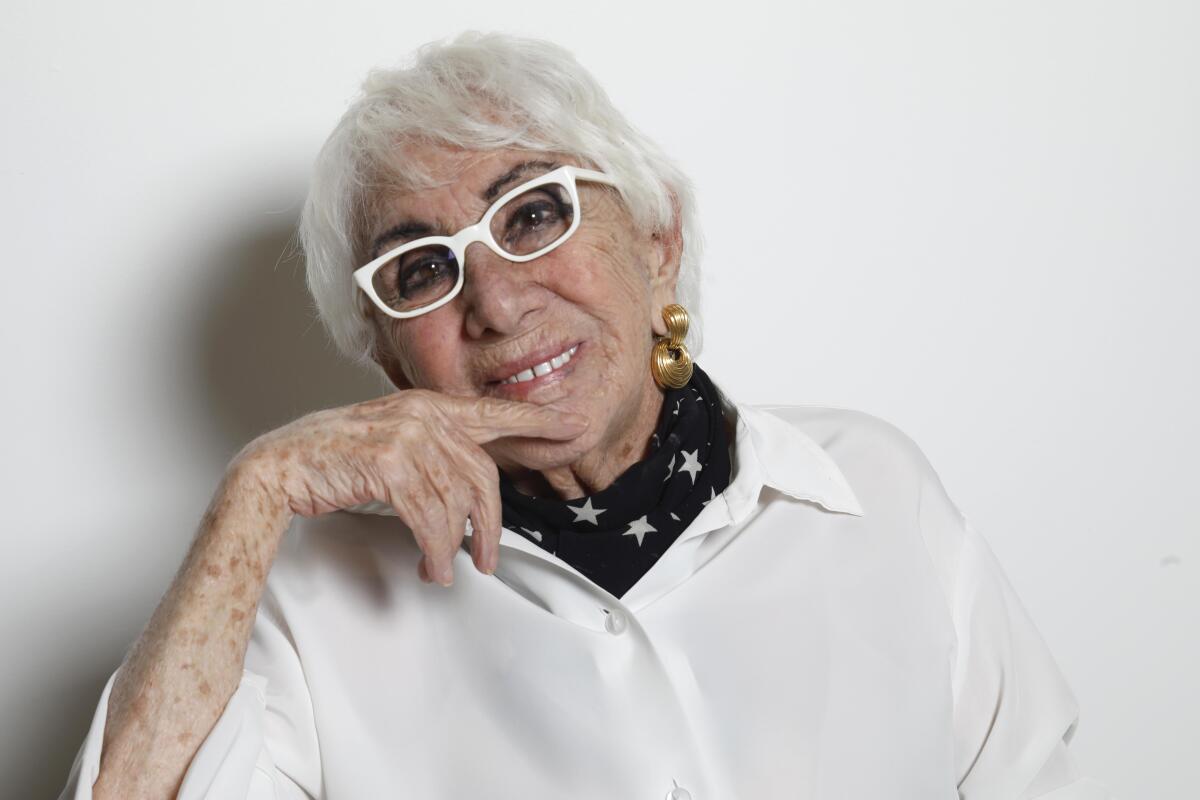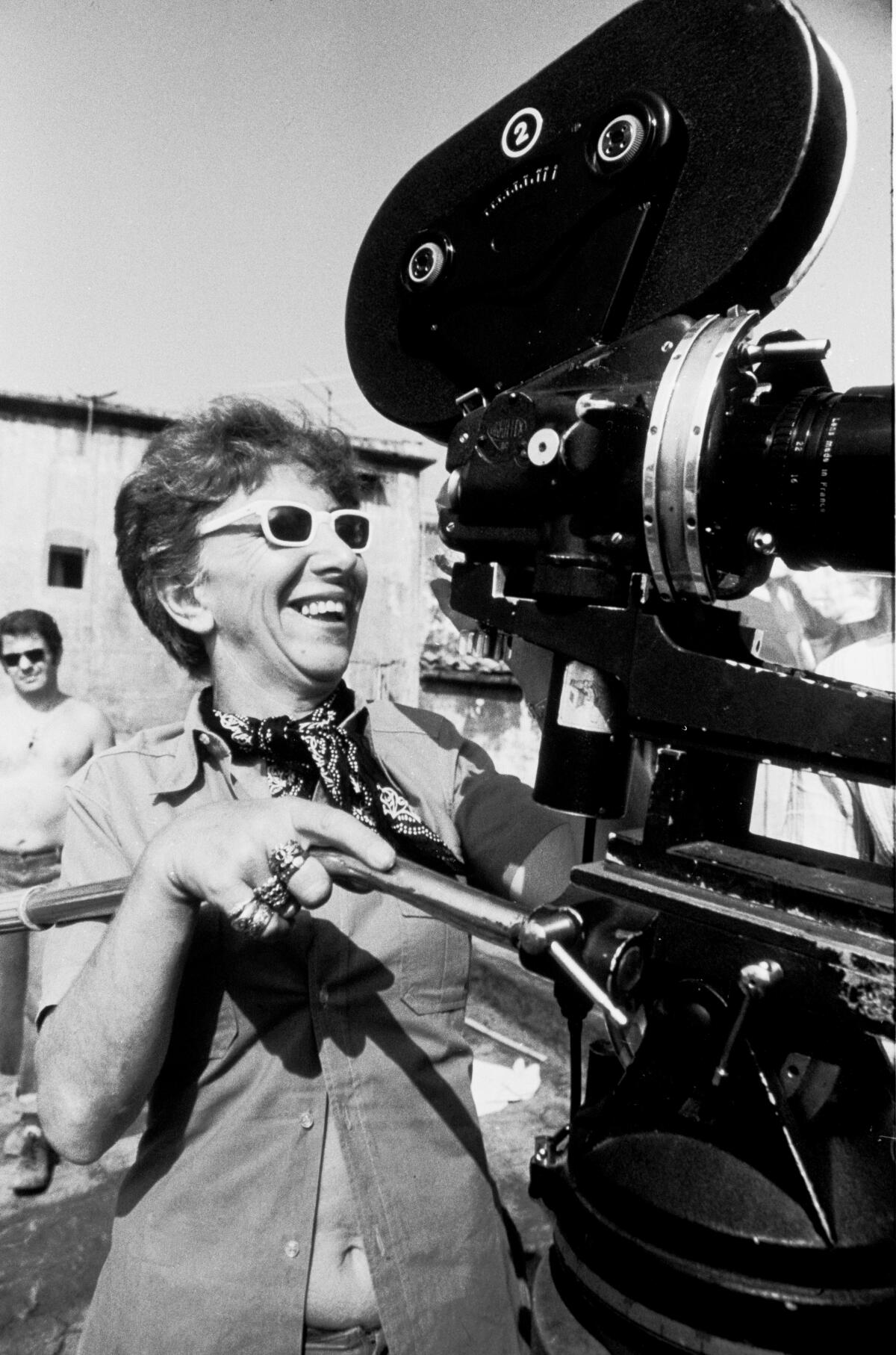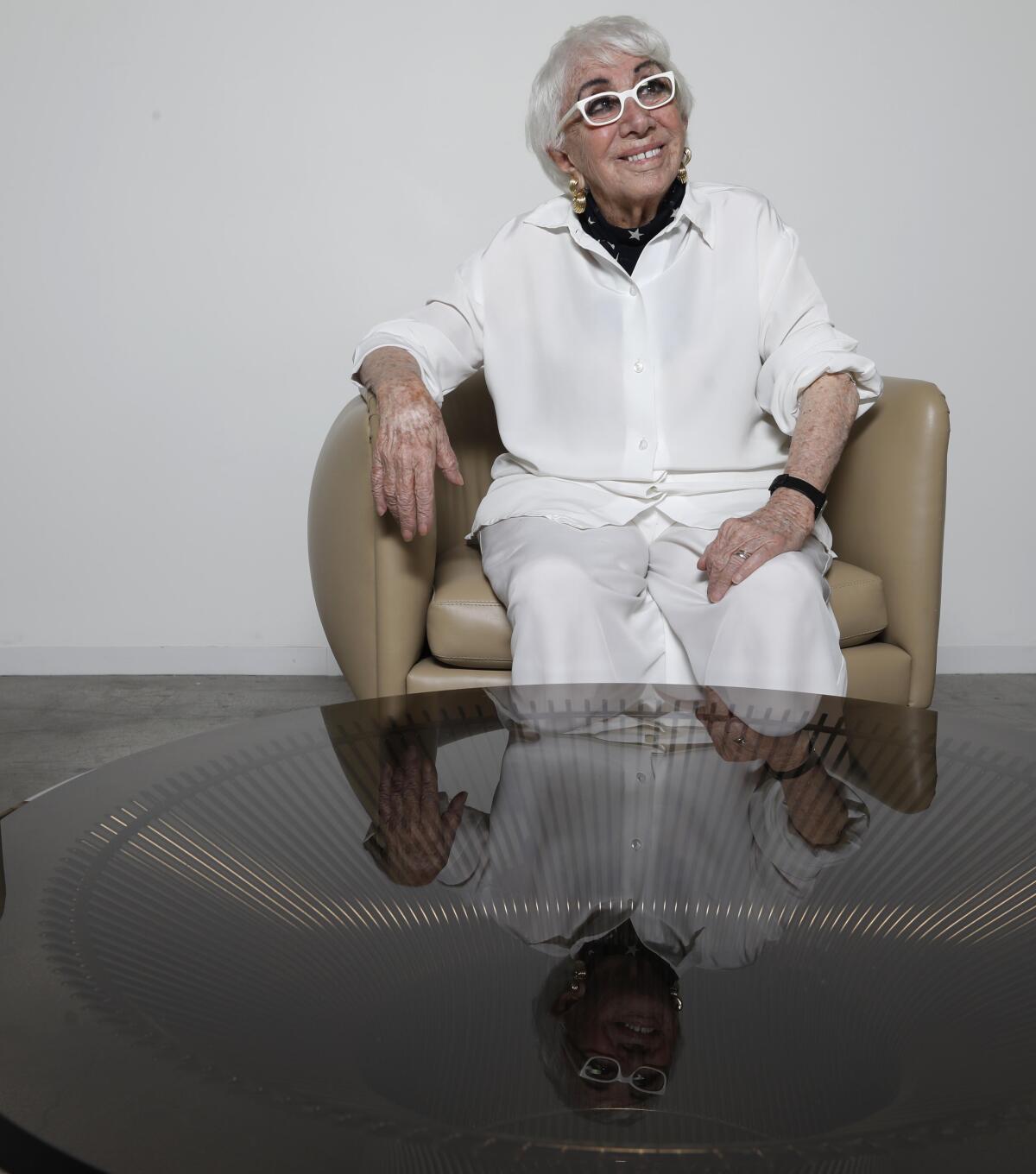Lina Wertmüller, first female filmmaker nominated for a directing Oscar, dies at 93

Italian filmmaker Lina Wertmüller, the first Oscar-nominated female director, whose work tackled political and social issues, has died. She was 93.
The pioneering director died Thursday at her home in Rome surrounded by her family, according to the La Presse news agency and the Italian Ministry of Culture.
“Italy mourns the death of Lina Wertmüller, a director who, with her class and unmistakable style, has left a lasting mark in our cinema and in the world,” Culture Minister Dario Franceschini said in a statement posted online, praising her “long and intense career, delivering works to which each of us will remain forever attached.”
The Rome-born nonconformist filmmaker made Academy Awards history for her work on the 1975 film “Seven Beauties” (released in Italian as “Pasqualino Settebellezze”). The Holocaust period piece starring Wertmüller’s longtime muse, Giancarlo Giannini, was nominated for four Oscars in 1977: screenplay, foreign language film, directing for Wertmüller and acting for Giannini.
Lina Wertmüller can’t fathom “what took so long” for the academy to honor her. But she’s grateful she’ll soon receive an honorary Oscar at the Governors Awards.
Although the directing trophy went to John G. Avildsen for “Rocky” that year, 42 years later, the Academy of Motion Picture Arts and Sciences bestowed an honorary Oscar on Wertmüller at the 2019 Governors Awards.
At the ceremony, during which she donned one of her hundreds of pairs of white-rimmed eyeglasses, she requested that the Oscar be renamed.
“She would like to change the Oscar to a feminine name,” actress Isabella Rossellini said, translating as Wertmüller accepted her trophy. “She would like to call it ‘Anna.’ Women in the room, please scream, ‘We want Anna, a female Oscar!’”
Wertmüller became the third woman to receive an Oscar for her work as a director, following Kathryn Bigelow’s historic win in 2010 for “The Hurt Locker” and French New Wave pioneer Agnès Varda’s honorary Oscar in 2017. “Nomadland” director Chloé Zhao became the fourth — and the first woman of color — when she won the award in 2021.
Wertmüller was born into an aristocratic Swiss family as Arcangela Felice Assunta Wertmueller von Elgg Spanol von Braueich. As a child, she would go to the movies with her grandmother and brother Enrico often during the week, fascinated by stories on the big screen and knowing that she wanted to be involved in that kind of entertainment.
As a teen, she met Flora Carabella, the wife of fellow actor Marcello Mastroianni, and Carabella became her best friend who introduced her to “the magic of theater.”

Going against her family’s desire that she study law, Wertmüller instead went to drama school at Rome’s Theatre Academy, where she acted, wrote and directed plays. She then toured Europe with Maria Signorelli’s puppet troupe.
Wertmüller began her filmmaking career when Mastroianni introduced her to famed Italian filmmaker Federico Fellini, whom she assisted on 1963’s “8½.” She observed his way of moviemaking and admired his “profoundly nonconformist” style, as well as his freedom to make decisions and changes on a whim.
“He was really a magician to me,” she said in a 2017 Criterion interview. “My experience with him as an assistant on ‘8½’ gave me an incredible chance to open my mind and to understand how beautiful my job can be.”
With unflinching ambition and satirical social commentary, the often misunderstood auteur took the cinema world by storm with the politically charged films “The Basilisks” (1963), “The Seduction of Mimi” (1972), “Love and Anarchy” (1973) and “Swept Away” (1974).
She served as a member of the Venice Film Festival jury in 1988 and as the director of Italy’s film acting school. Wertmüller worked closely with her husband, Enrico Job, a set designer who died in 2008, on all her successful films and called him her “best critic.”
She also worked almost exclusively in the Italian film industry but believed that the experiences of women striving to break the mold were universal.
“Everybody conquers the space that they manage to conquer,” she told The Times in 2019. “I don’t see much of a difference between Europe and America.”
In the 1970s, Italian film director Lina Wertmuller became the first woman ever nominated for an Academy Award for best director and was hailed as the next Fellini for her powerful political comedies.
After her ’70s golden age, critics and awards officials, for reasons that were “a mystery” to Wertmüller, largely turned their backs on her later works. But some projects, such as 1999’s “Ferdinando and Carolina,” have earned delayed admiration.
“Because I have been able to be myself, I’ve been able to make the kind of films that I did,” she said in 2019. “When this could happen, and somebody didn’t want to support one of [my] ideas, I would move on and go to another producer or go find another way to make the film.”
Laraine Newman, the former “Saturday Night Live” star and a founding member of the Groundlings improv troupe, was among those who paid their respects Thursday.
“You can well imagine how much I loved Lina Wertmuller,” she tweeted. “An original, an innovator and a poetic subversive. Rest In Peace great lady.”
“Iconoclastic, indefatigable, inimitable. Love you, #LinaWertmuller,” added “Russian Doll” star Natasha Lyonne.
Writer and producer Larry Karaszewski (“Dolemite Is My Name,” “Ed Wood”) tweeted that “Seven Beauties” is “a masterpiece — tragic, funny, outrageous and bittersweet… sometimes all in the same scene.
“Lina was brilliant at mixing tones while always being in total control. She was the best,” he wrote.

Indeed, Wertmüller often opened her films with frenetic sequences meant to fill audiences with a sense of chaos.
“It always depends on the story, but in general I try to entertain my audience and to capture their attention from the very beginning,” she told Criterion. “I love grotesque poetry, and I think my films have that style, which combines humor and drama, irony and cynicism, comedy and tragedy. It allows you to play with different narrative tones and rhythms. It’s more than a style — grotesque narrative reflects my own personality.”
Wertmüller is survived by her daughter, Maria Zulima Job.
The Associated Press contributed to this report.
More to Read
Only good movies
Get the Indie Focus newsletter, Mark Olsen's weekly guide to the world of cinema.
You may occasionally receive promotional content from the Los Angeles Times.










